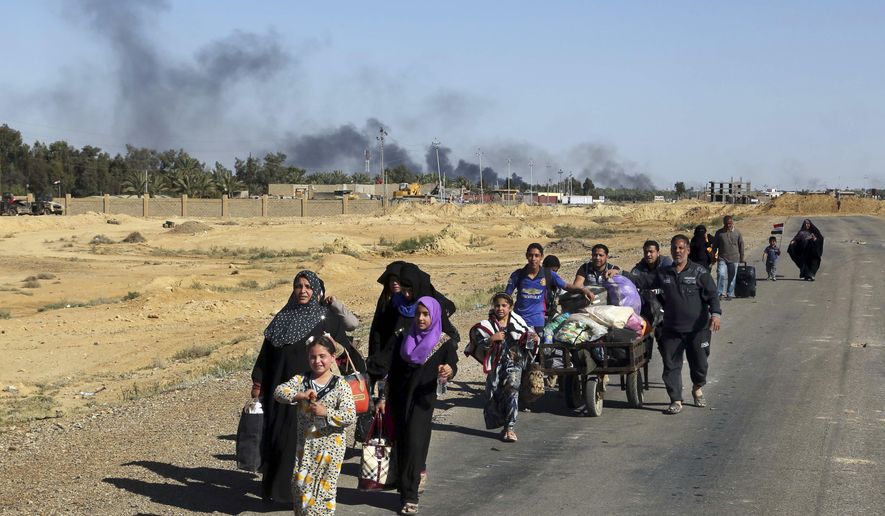American airstrikes against Islamic State banks and cash houses in Iraq and Syria over the last several months have cost the terror group between $300 million and $800 million, the U.S. officer in charge of operations said Tuesday.
During one particular airstrike on an Islamic State cash house outside the southern Iraqi city of Mosul, U.S. forces reportedly destroyed $150 million in funds and killed the group’s finance minister Hajji Iman, Air Force Maj. Gen. Peter Gersten, the operations chief for U.S. forces in Syria and Iraq, told reporters at the Pentagon.
The Mosul strike was part of the U.S. effort to take out the terror group’s funding streams, from Islamic State-held oil fields to the organization’s network of banks and cash houses, dubbed Operation Tidal Wave II that began in October.
U.S. intelligence estimated the group’s financial losses due to the operation was between $300 to $800 million, Gen. Gersten said during a briefing from Baghdad.
“The Tidal Wave strikes led us to their bank sources, their bank sources have led us to their distribution sources, and their distribution sources has led us to their foreign fighters,” he added.
As a result, according to Gen. Gersten, the number of foreign Islamic State recruits heading into Syria and Iraq has dropped from roughly 2,000 per month down to 200 a month. Defense Department estimates the group has between 19,000 and 25,000 fighters across Iraq and Syria, which is the lowest estimate since 2014.
“We’re seeing their inability to pay. We’re seeing the inability to fight. We’re watching [foreign fighters] try to leave Daesh,” he said, using a derogatory term for the extremist group.
Earlier this month, United Nations officials reported that the Islamic State was drawing between $150 million to $200 million a year from the black-market sale of looted antiquities from Syria and Iraq.
Nearly 4,500 archaeological sites in the region are located in areas in Iraq and Syria where the Islamic State holds sway. The group’s financiers have taken to online auction sites such as eBay to sell the looted artifacts to collectors worldwide, according to Reuters. The artifacts are also reportedly moved through black market networks in Turkey and Europe.
• Carlo Muñoz can be reached at cmunoz@washingtontimes.com.




Please read our comment policy before commenting.